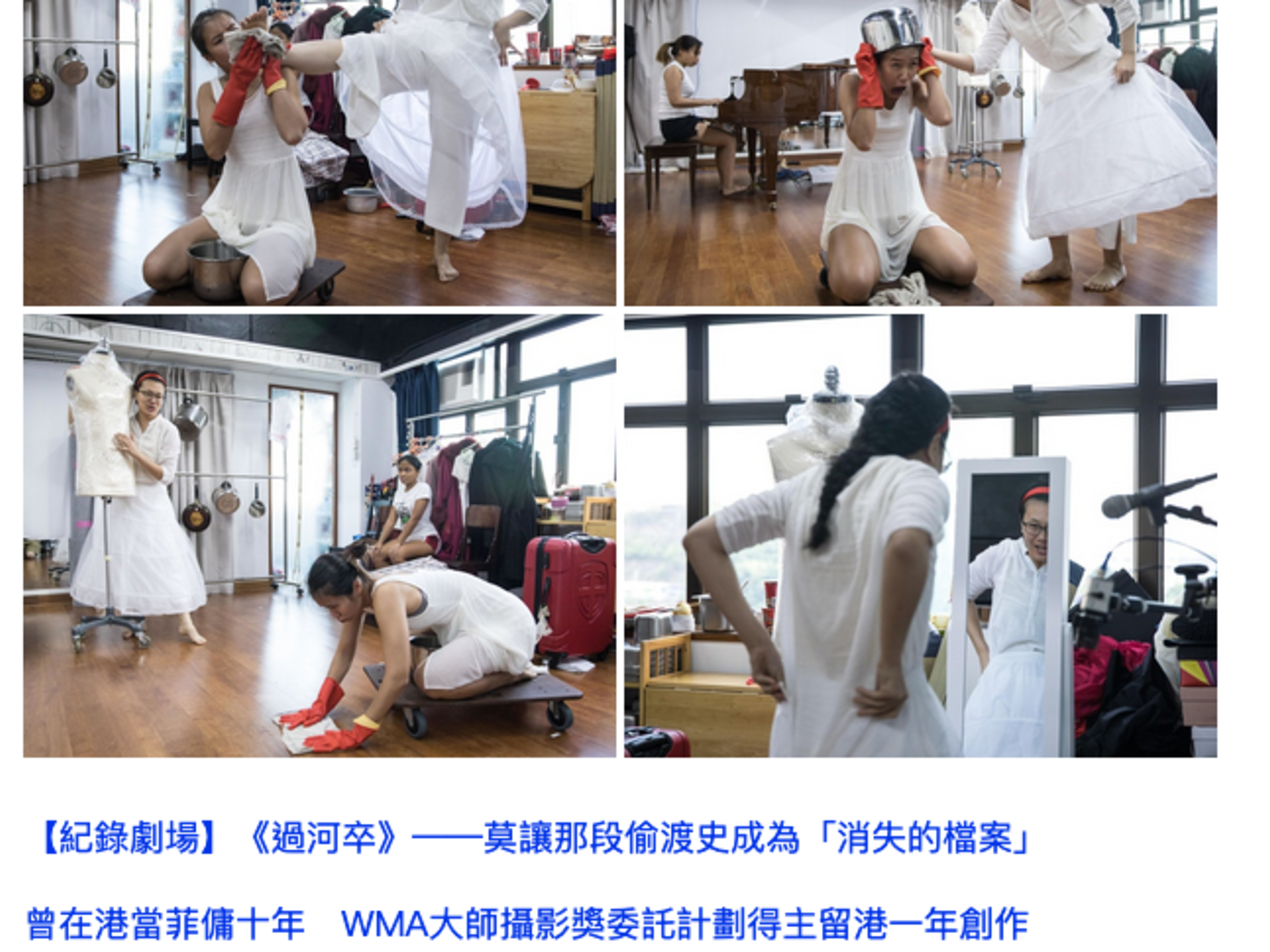
Documentary Theatre: Not the Maids
Theatre Piece based on Helpers' Real Experiences
In Hong Kong, there are 350,000 foreign domestic workers. Every Sunday, they appear on the streets, occasionally becoming the focus of news, while the majority of their lives remain hidden in their work, and their living conditions are largely unknown. What is their relationship with this city and their employers? Rooftop Productions brings the real working and living situations of foreign domestic workers to the stage, exploring the complex power dynamics.
Putting Ourselves in Their Shoes: Focusing on the Issues of Foreign Domestic Workers
Like the domestic workers, the director of "Not the Maids," Ivor Houlker, is also a foreigner. When he came to Hong Kong a few years ago, he took a bus with another director of the play, Michelle Li, from Sheung Wan to Kowloon. Along the way, they saw many foreign workers gathered in Central. Ivor was surprised and asked Michelle what was happening. "You only see such a large population of Filipinos in public on Sundays; they are invisible on other days." He pointed out that when imagining the population of Hong Kong as a foreigner, this group was not included. At the same time, he felt that his identity from the UK received better treatment than that of the domestic workers, saying, "The acceptance by society and legal treatment are completely different." Since then, he began to pay attention to the issues faced by foreign domestic workers, hoping to use his advantages to facilitate communication between them and locals.
Local-born Michelle Li began to reflect on the situations she had taken for granted. "During my teenage years, we already had a helper at home, so I was used to having someone to take care of household chores." After studying abroad, when visiting friends' homes, she noticed their mothers dressed elegantly and assumed that such a tidy home environment must be managed by someone else. "It turns out that the way of handling household chores is a very different concept," Michelle reflected.
They had always wanted to create a play about foreign domestic workers, and when a production company held the "Theatre and Society: Documentary Theatre Festival," they submitted their idea. "Documentary theatre can present this issue more authentically," Ivor said. Inequality in Everyday Life
In addition to visiting foreign domestic workers and their employer households, they interviewed scholars, journalists, social activists, agencies, churches, and non-profit organizations concerned with foreign domestic workers, such as Help for Domestic Workers and Mission for Migrant Workers. They also reviewed government documents and academic articles. Through researching and reading academic literature, Michelle was surprised to find how the power structure legitimizes the inequality in employment, revealing complexities far beyond her imagination and prompting her to reflect on her past experiences.
"When I used to share food with the domestic worker, I wouldn’t put a piece of meat I wanted on her plate; I would only choose something with less meat. You know it’s wrong, but you do it anyway," Michelle said. The inequality is not just in working conditions; this employer-controlled, superior mindset permeates all aspects of life. "Sometimes employers overlook the power dynamics. Beyond denying workers their days off or physically abusing them, many other things can happen." Strange and unheard-of incidents also appear in "Not the Maids," such as one interviewed domestic worker who lived in a hotel serving her employer’s family and a small dog. The worker had to sneak the dog out to walk on the street while avoiding security and then surreptitiously return it to the hotel room. "Why does a domestic worker need to take classes when the employer does not? When a domestic worker enters a household, the whole family changes. Is knowing how to delegate tasks enough to make one an employer?" Michelle pointed out that with power comes responsibility; employers must not only pay salaries on time but also maintain ethical behavior.
Although their interviews revealed various levels of mistreatment faced by foreign domestic workers, there were also positive examples. "One family is very aware of the circumstances faced by their domestic worker. When she faced discrimination in a restaurant for wearing a Muslim headscarf and was labeled a terrorist, the employer intervened to stop it," Ivor said.
Role Reversal: Domestic Workers Are People Too
"Not the Maids" brings to the stage the unique life stories of each domestic worker collected, with real scenarios that are exaggerated and humorous, revealing injustice and sorrow. Influenced by the text of French writer Jean Genet's "The Maids," "Not the Maids" plays with role reversals; at the beginning, a dice is rolled to determine who is the employer and who is the servant, as if fate is toying with them—where you are born dictates your destiny.
Through "Not the Maids," Ivor hopes to not only present the issues but also authentically and intricately portray the characters and lives of foreign domestic workers, allowing the audience to understand that they, too, are people. Michelle added, "If employers understand the power dynamics, their judgments might be different." Therefore, there will be post-performance discussions to help more foreign domestic workers and employers clearly understand these issues. Michelle hopes that "Not the Maids" will allow more foreign domestic workers and employers to see each other.
Automatically translated from the original ChineseGallery
Originally published in: HK01. We create a mirrored version of reviews and articles about our shows for archival purposes, so that we can retain a version if the original disappears. We always link to the original publisher and credit the author. However, if you are the owner of this material and you would like us to remove it, please get in touch.
